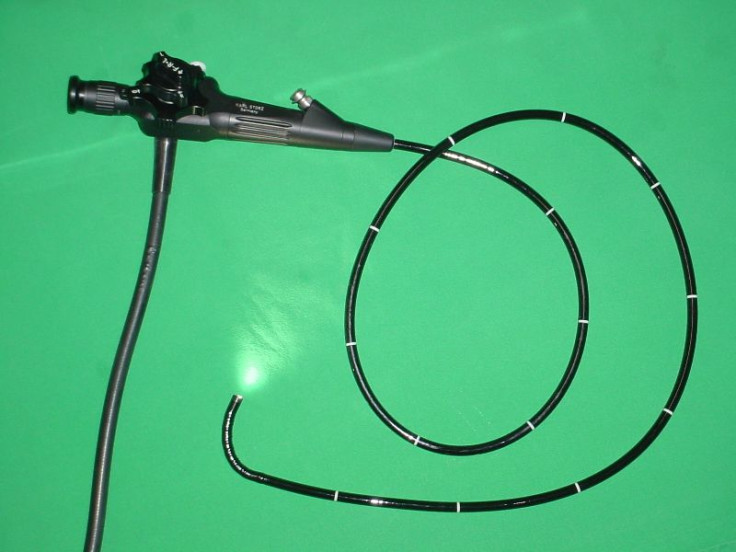Superbug Outbreak In Los Angeles Linked To Medical Tool Design Issue That FDA Knew About For Years

The deadly outbreak of a drug-resistant superbug at a hospital in Los Angeles has been linked to a design flaw in one of the health facility’s medical instruments, a defect that federal health officials first drew attention to in 2013 but has not been corrected. The device is used in about half a million patients across the country every year and has been implicated in several previous outbreaks of carbapenem-resistant Enterobacteriaceae, or CRE, a family of germs common in hospitals that have developed a resistance to antibiotics.
Investigators announced Thursday that the cases of CRE discovered at the Ronald Reagan-UCLA Medical Center were caused by tainted duodenoscopes, medical instruments that are inserted down patients’ throats to examine and treat digestive problems such as gallstones or cancer. The device consists of a flexible, lighted tube with a mechanism on its end that allows the operator to change the angle of the tool’s camera. The problem with the duodenoscope, health officials have said, is that its design makes it more difficult to sterilize with conventional methods.
Since 2012, the Food and Drug Administration has identified at least a half-dozen outbreaks of CRE across the country that likely started because of dirty duodenoscopes, according to a statement released Thursday by the agency. The FDA was first made aware of the potential link between the medical devices and the possibility to spread drug-resistant bacteria in 2013 following a tip from the Centers for Disease Control and Prevention. “The FDA has been actively working with federal partners, manufacturers, and other stakeholders to better understand the issues that contribute to the infections and what can be done to mitigate them,” spokeswoman Leslie Quander Wooldridge told the Los Angeles Times.
So far, seven patients at the UCLA medical center have been infected with CRE. Two of them died Wednesday. "We notified all patients who had this type of procedure, and we were using seven different scopes,” UCLA spokeswoman Dale Tate said in a statement, according to the Associated Press. “Only two of them were found to be infected…we removed the infected instruments, and we have heightened the sterilization process.”
Health experts have wondered whether the federal agency could have acted sooner to address the CDC’s concerns over the device’s harmful potential. "It's fair to ask whether the FDA could have been doing more to regulate these devices and significantly reduce the risk of patient harm," Lawrence Muscarella, a biomedical engineer and independent hospital safety consultant, told USA Today in January. "Patients have died, and the agency seems to be moving slowly."
© Copyright IBTimes 2024. All rights reserved.






















